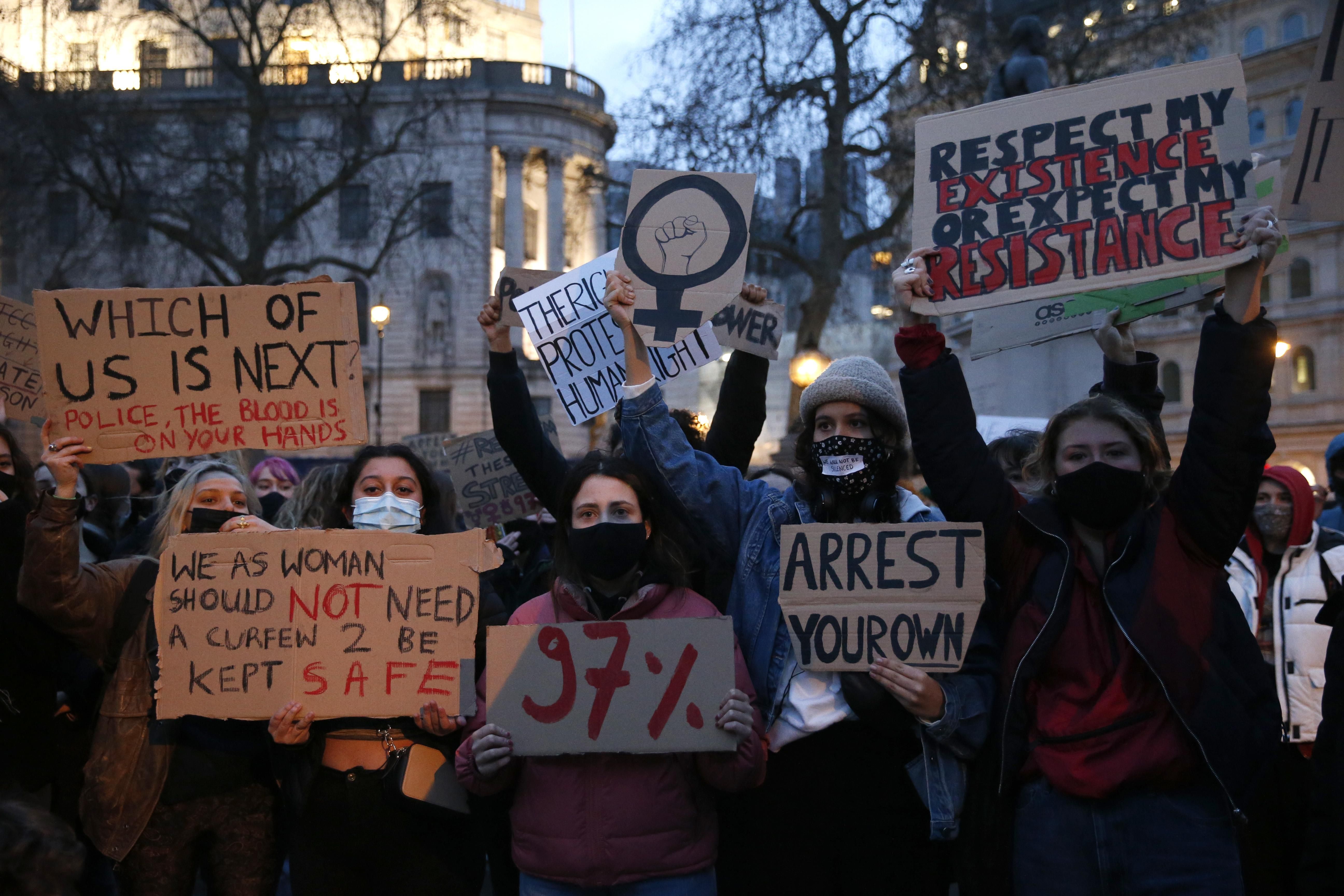The killing of Sarah Everard sparks a larger conversation surrounding violence against women
Being a woman is incredible in numerous ways. It also comes with its own set of challenges. Among the many setbacks we face, is the constant fear of being sexually harassed or assaulted within our lifetime. It's a gnawing sense of alarm that resides in many of our minds, resulting in subtle micro-protections we've conditioned into our daily routines.
We occasionally glance over our shoulders on an evening walk home. We grip our keys a little tighter whenever we notice a member of the opposite sex walking too close behind us. We immediately call our partners or friends the moment we get home, just to let them know we're safe. All these acts of provision are subtle reminders of the fundamental risks women continue to face for not having been born a man.
Sarah Everard, a 33-year-old marketing assistant from the U.K., was killed on her walk home from a friend's house in Clapham. Her death has sparked frustration and concern regarding the safety of women, and the lack of precautions protecting them. While the investigation is ongoing, a serving Metropolitan Police officer is being accused of her murder.
Last Thursday, Prime Minister Boris said he was "shocked and deeply saddened," by the case, adding, "We must work fast to find all the answers to this horrifying crime." In addition, the head of the Metropolitan Police, Commissioner Cressida Dick, said the force was "appalled" over news of one their own being taken into custody over Everard's disappearance.
According to footage from a doorbell camera, Everard was last seen at 9:30 p.m., on the evening of March 3rd. Footage showed Everard on the phone with her boyfriend while walking home. On Saturday, a vigil was held for Everard in the UK, after news broke of her death. Countless women's rights activists took to the UK streets, expressing their frustration over the safety of women.
Initially, the Clapham vigils - organized by "Reclaim These Streets" - were cancelled due to COVID-19 restrictions in the UK. However, peaceful mourners gathered regardless, chanting: "This is a vigil, we do not need your services."
There have been several occasions where I've been in a position just like this. Countless times I've walked home from a party, or taken the subway late at night, often staying on the phone with my former boyfriend. I could easily have been Everard, and perhaps that's why this story hits so close to home.
According to recent statistics from UN Women, 97% of young women in the UK have been sexually harassed at some point within their life. Eighty percent said they had experienced sexual harassment in public spaces.
"This is a human rights crisis. It's just not enough for us to keep saying 'this is too difficult a problem for us to solve' – it needs addressing now," said Claire Barnett, executive director of UN Women UK.
Barnett went on to say they're "looking at a situation where younger women are constantly modifying their behavior in an attempt to avoid being objectified or attacked, and older women are reporting serious concerns about personal safety if they ever leave the house in the dark – even during the daytime in winter."
What is probably most chilling about this story, is the fact a police officer was taken into custody and questioned for Everard's disappearance. As a child, I often envisioned police officers as heroes. They were individuals who were meant to protect the community. But as I grew up, my veil of naivety was lifted, and I began understanding not all police officers have the community's best interest at heart.
This is yet another reminder that male violence seeps heavily into every major institution. After news of Everard's disappearance broke, many individuals took to social media to show support for Everard and her family.
"What happened to Sarah Everard has hit home hard for so many women because we make the calculations, she did every day too. We take the longer, better-lit route, push the fear aside for the voice that says, 'don't be daft, you've every right to walk home alone at night and be safe," Sky News political correspondent Kate McCann wrote.
Actress Amber Davies also commented on Twitter, writing " Absolutely terrifying reading the news. My heart hurts for #SarahEverard and her family. How can a young woman innocently walking home turn into this? Just sickening!"
While many individuals expressed empathy and distress, there were those who chose the alternate route and blamed Everard, with the hashtag #NotAllMen trending.
Few men are rapists, but many do contribute to the toxic behavior that perpetuates assault. Continuing to ask redundant questions like "well, why was she walking home alone?" or "what was she wearing?" is beside the point. The questions we should be asking is, why a man felt entitled enough to harm a woman in the first place.
Society needs to stop blaming victims and do a better job of educating men and boys on the issue. Just because you're not actively assaulting women, doesn't mean you're a part of the solution. Men need to be committed to changing their behaviors. They need to educate themselves and actively participate in conversations surround rape culture.
We shouldn't be asking what women can do differently. Women are not the problem. It's men who need to change. They need to hold their counterparts accountable for their toxic behavior, and support women when they speak out against perpetrators instead of undermining them.
Have you got something to say? Want to share your experiences with the world? Submit a post to Conversations for the chance to see your writing here.
